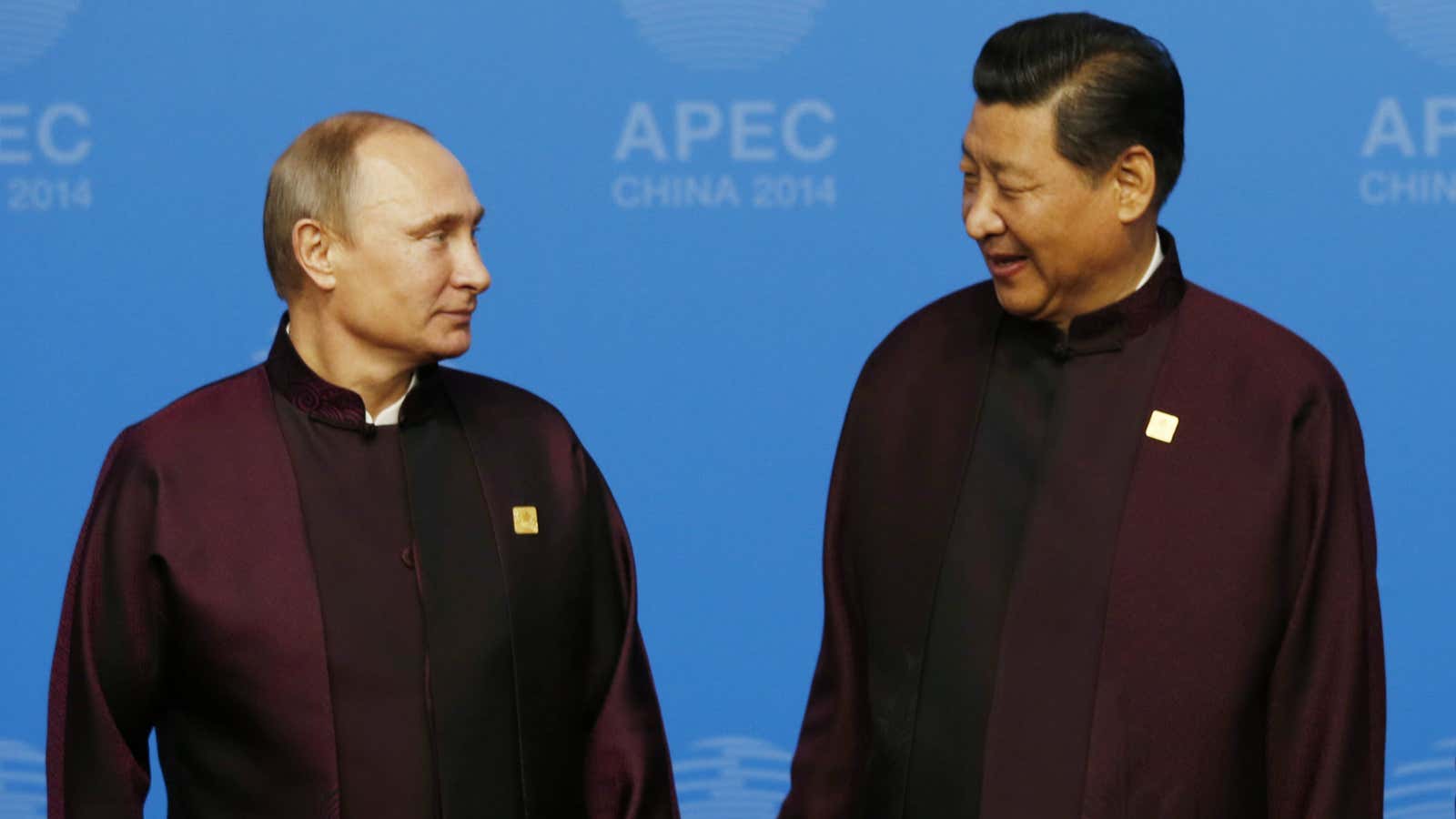Russia overtook Saudi Arabia as China’s largest source of oil in May, shipping a record 3.92 million metric tons, a 20% increase from April.
This isn’t the first time that this has happened (although the last time was more than 10 years ago), and Russia isn’t the only country to ship more oil to China than the Saudis. Angola also sold more oil to China than Saudi Arabia in May.
Still, it is the latest sign of the growing ties between Russia, suffering under sanctions and increasing international isolation, and China, which is investing heavily to bolster its slowing economy, namely by building a global infrastructure network.
Just this week, China Railway Group said it will design a high-speed rail line from Moscow to Kazan. China’s rail giant is expected to win the $19 billion contract to build the railway as well. After a landmark 30-year, $400 billion natural gas deal was signed in May of last year, leaders from the two countries have pledged more energy cooperation, and Chinese banks plan to step up financing for Russian companies which have been shunned by Western banks thanks to sanctions.
This week, the Moscow Times reported the two nations were planning nothing short of “launching a new world order.” Alexander Gabuev, chairman of the “Russia in the Asia-Pacific” program at the Carnegie Moscow Center think tank, told the paper:
A strategic partnership between the two has become a reality. Other states will have to learn how to deal with this new reality.
While ties between the two nations are growing, taking a broader economic view shows just how minor a player Russia remains to China’s economy—it was China’s ninth-largest trading partner last year:
Trade with Russia represents just 8% of China’s trade with the US and EU, the lead instigators of sanctions against Russia.
And while China might be importing oil more from Russia, given a cooling domestic economy, Beijing is unlikely to willfully jeopardize economic ties with its two largest trading partners. The relationship between Beijing and Moscow is less grandiose than some claim—in reality, China is more like Russia’s “loan shark.”
